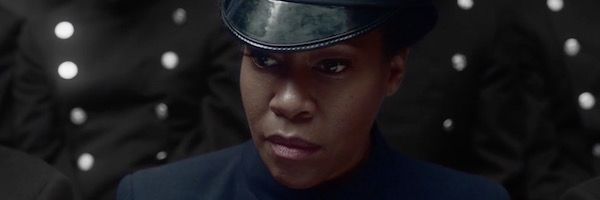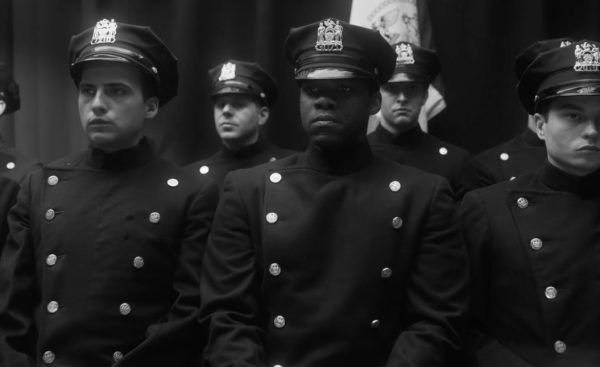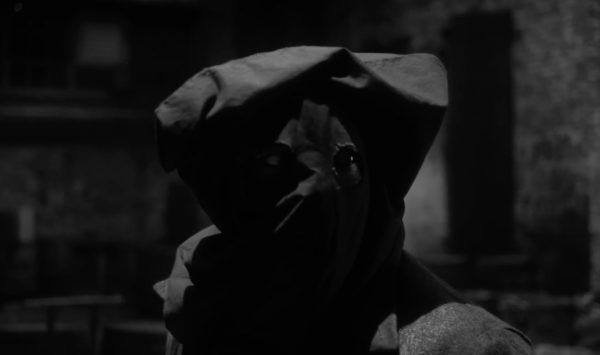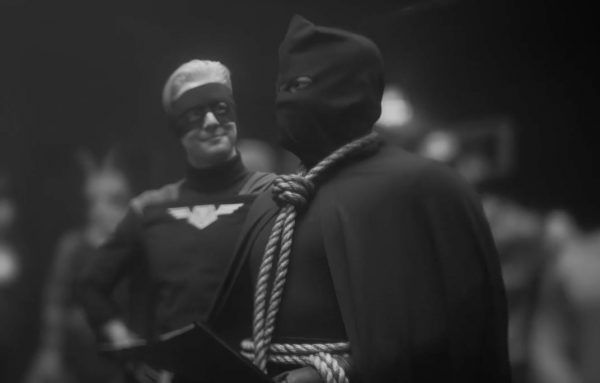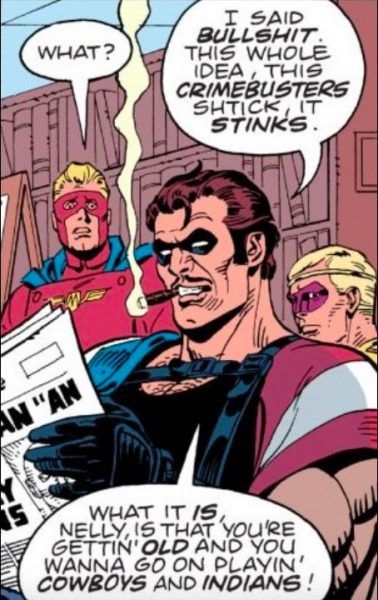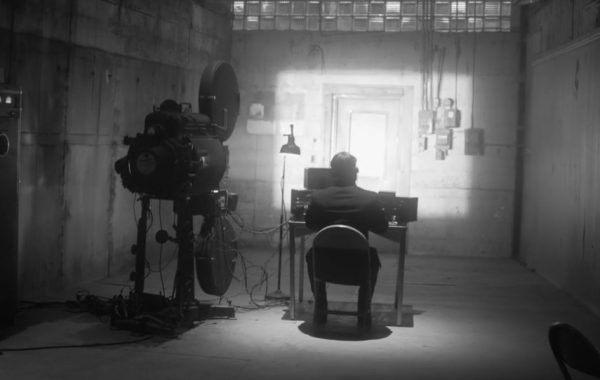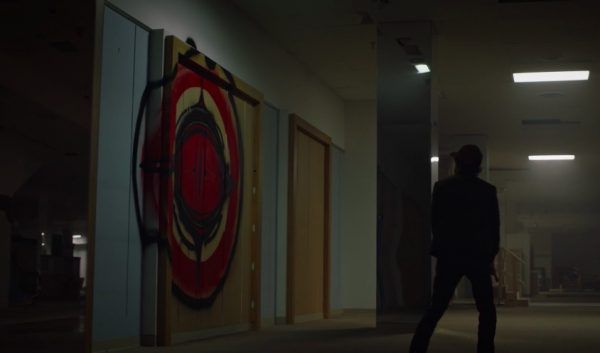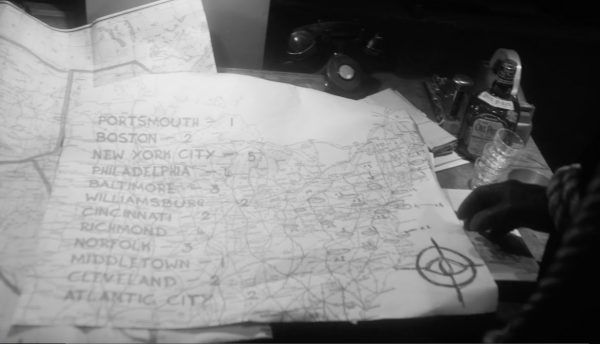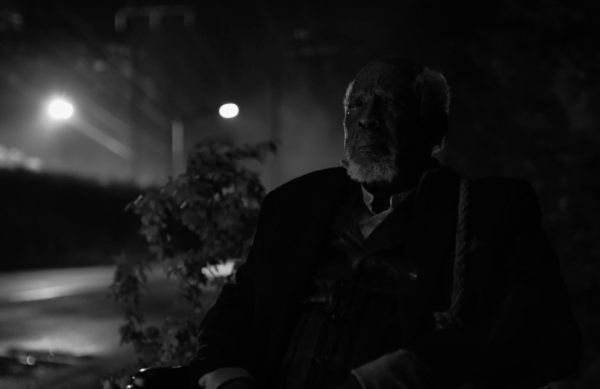I think it's fair to say that Damon Lindelof and his crew of writers, directors, and performers did not need to go this hard when it came to HBO's Watchmen. It would've been so easy to just hard-R adapt Alan Moore and Dave Gibbons comic series, cast John Cena as Doctor Manhattan and maybe, like, Walton Goggins as Rorschach*, and call it a day. Instead, this show decided to become a masterclass in updating an artwork for the era it's aged into, and the absolutely remarkable "This Extraordinary Being"—directed by Stephen Williams, written by Lindelof and Cord Jefferson—is its time-hopping tour de force.
Let's just jump right into it this week because there aren't a whole lot of questions, but more like...reflections? Contemplations? Overwhelming guilt at contributing to a society that has historically held down a specific community solely for the color of their skin? Yeah, one of those, probably. Let's get into it.
(*But real quick, the rest of that cast would have to be Rebecca Ferguson as Silk Spectre, Chris Pratt sent back in a time machine to 2013 as Nite Owl, and, for absolutely no reason, Joe Pesci as The Comedian. No further suggestions at this time.)
Who Is Will Reeves?
What a complicated question. After ingesting a whole coma's-worth of the memory-inducing pills known as Nostalgia, Angela Abar (Regina King) was thrust backward in time to learn the truth—well, truths, all of them—about her grandfather. Young Will Reeves (Jovan Adepo) was, in fact, a New York cop in the 1930s and 40s, a time when just being a black man meant the chief of police won't shake your hand at inauguration. He was also an angry man trying to tamp down his feelings, but it's hard when you witnessed the worst of humanity up close and personal from the inside of a basket before you hit ten. And he was also also an angry man whose anger could never be sated in the police system, because it was—lol, is—a system that works against him and allows extremely roundheaded assholes to light figurative and literal fires without consequences.
The first-person lynching in "This Extraordinary Being" is one of the most harrowing TV sequences of all time, full stop. But it provided Will Reeves with three things. A mask, a noose, and a purpose.
So Will Reeves is Hooded Justice?
I love the way this episode kicked off with the American Hero Story: Minutemen segment that revealed Cheyenne Jackson—a wonderful actor and performer, but also owner of perhaps the Whitest Male Face of all time—as the "identity" behind Hooded Justice. It makes the real reveal of the episode hit that much harder, underscoring how our actual american hero stories are so often taken out of the hands of the African-Americans involved.
Will Reeves was Hooded Justice, using the mask and rope some monsters forced around his head to hide his face while he proceeded to beat the absolute shit out of the local KKK corral ruining his town. The reason he never took off the mask wasn't that he was an escaped circus strongman/child serial killer on the run, but because society simply wouldn't have accepted a black man as its hero. I can't get over how bold of a re-write this is of Moore and Gibbons' original story. It doesn't change anything—the core story of the comic, squid and all, is 100% intact as is—but adds an entirely different dimension to its themes. The history of the masked vigilante in Watchmen is one of your regular ol' joes putting on costumes and fighting crime. Part noble act, part unhealthy hobby, usually revealed to be carried out by someone hiding deep personal flaws beneath that latex and rubber. But the story of Will Reeves' transformation into Hooded Justice is the story of who we allow to work out their problems in public, who we give leeway to, who we forgive with the benefit of time.
Captain Metropolis Was Kind of a Dick, Huh?
Oh yeah, big time. More like Captain Mega-Triple-Ass IMHO. (Shut up.) You absolutely do have to feel for Nelson Gardner (Jake McDorman) as a closeted gay man living in the 1930s, but Watchmen makes clear the fact that everything the early-days crime-fighter did—from putting on the costume to entering a sexual relationship with Will Reeves—was for ego-driven personal gain. “We have a city to save…but first let’s talk about your savings with your good friends at National Bank," is some hilariously transparent fuckery on par with, like, Kanye West selling $100 t-shirts at his "church services."
Obvious grifts are obvious, but Gardner's lack of empathy extended to far more repugnant places. Will Reeves bludgeoned his way to the actual heart of his community's corruption—an insane, racist hypnotizing scheme, we'll get to that in a second—and how does "superhero" Captain Metropolis respond?
“I’m sorry but this sort of thing isn’t really the Minutemen’s cup of tea," he says. "I’m afraid you’ll have to solve black unrest all on your own.”
I'm not gonna' casually be out here agreeing with The Comedian, but I do suddenly feel a lot softer toward the moment to the right from the comics when Eddie Blake just ruthlessly dunks on Captain Metropolis in a public setting. Even Nite Owl is like "wow that's embarrassing" and he's Nite Owl.
What Is Cyclops, and What Was the Deal With Their Hypnotizing Scheme?
So because the Ku Klux Klan is a super mature group made up of completely sane adult men, the term "Exalted Cyclops" does appear in their real-life hierarchy, but Watchmen's "Cyclops" appears to be a totally different beast. It is, essentially, the KKK, and their wonky one-eyed symbol has been popping up throughout the show and its supplemental materials since the beginning. First, in the letter Joe Keene Sr. sent to Judd Crawford's father:
Next, on the wall of the Seventh Kavalry hideout that Wade Tillman stumbled upon in episode 5.
And this week, in the past, as Will Reeves uncovered the vast and insidious conspiracy worming its way throughout the country.
Cyclops' plan in the 1940s was straight out of a sci-fi series. Using lessons from a book titled "Mesmerism for the Masses" by a hypnotist named W.C. Florentine, Cyclops was subliminally implanted ideas into peoples' heads with a mind-altering light source, causing black communities to turn on each other. As you can see in that photo up there, the white supremacist organization had several cities in mind for its grand plan.
And we actually still don't know if they pulled it off. Will Reeves burned one section of the group to the ground but that symbol still made its way to 2019. Assembled groups of prejudiced a-holes have a way of sticking around, unfortunately. The Empire morphed into the First Order, and it looks like "Cyclops" simply evolved into the "Seventh Kavalry" thanks to a weirdo in a Rorschach mask.
But here's the kicker: That mind-control method made it to 2019, too, but it's in the hands of the much-older Will Reeves. "This Extraordinary Being" explained, among other things, how a 100-year-old man in a wheelchair lifted 200 pounds into a tree. I'll cop to straight-up forgetting that the last we saw Judd Crawford alive was lit by a mysterious flashing light. (A lot happens on this show. Remember when Jeremy Irons catapulted himself into outer space?) That light was Will Reeves putting thoughts into Judd's mind, suggesting he hang himself, and under that illuminating influence, Judd obliged.
How Does This All Tie In to the Modern-Day Story?
Now that is also a complicated question. If it's one thing this episode proved, it's that whatever sketchiness WIll Reeves and Lady Trieu are up to with their Millennium Clock, they are not working with the Seventh Kavalry. I don't know if you noticed but Will Reeves isn't a huge fan of racists. And Trieu, too, has a vested interest in giving bigots their due. The same way Reeves supplied his grandfather with Nostalgia, Trieu is much more gently showing her daughter, Bian, memories of violence in Vietnam. Absolutely worth noting: In Watchmen, both Doctor Manhattan and The Comedian were heavily involved in the Vietnam War, something last week's episode just happened to make sure you remembered.
This would mean that the Seventh Kavalry fucking around with dimension portals, historically a bad idea, is a completely different underground plot. Tulsa, Oklahoma has quite literally never had this much stuff going on. So, to recap [deep breath]:
The first vigilante in history, Hooded Justice, returned to his hometown with a hypnotism flashlight and made the chief of police—who was also low-key working alongside a white supremacist organization—hang himself. He then dropped off his memories in pill form to his biological granddaughter—who dresses up like a nun to fight crime—right after being lifted into the sky by a flying magnet owned by Lady Trieu. Trieu is a trillionaire building a massive clock in Oklahoma that is going to do something vaguely menacing when it boots up. Meanwhile, a terror cell inspired by Rorschach's diary figured out the secret to teleportation technology and built the same device that the world thinks dropped a psychic squid on to Manhattan 30 years ago. Except that was a hoax orchestrated by Adrian Veidt, who is currently trapped in outer space.
So, yeah, hope this clears things up.

